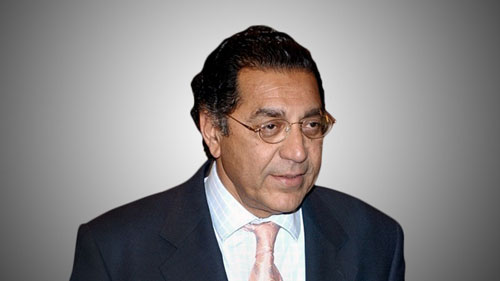Pakistan has told the United Nations Security Council that India was suppressing the Kashmiris’ struggle for freedom, as no effort has been made to distinguish terrorism from the pursuit of peoples’ legitimate right for self-determination and national liberation.
According to Kashmir Media Service, Ambassador Munir Akram said in a written response to a speech made by the India’s UN envoy on Aug 9 during the 15-member body’s debate on “Threats to International Peace and Security caused by terrorist acts” said, “This right (of self-determination) is inherent and it was promised to the Kashmiri people by the Security Council.”
Ruchira Kamboj, the Indian envoy, had made oft-repeated allegations that Pakistan — without naming it — was aiding some terrorist groups, and she also expressed surprise that the UN counter-terrorism report does not take notice of the activities of several proscribed groups, especially those repeatedly targeting India.
Rejecting Indian insinuations, Ambassador Akram reiterated his government’s strong condemnation of terrorism in “all forms and manifestations”, saying that Pakistan was a principal victim of terrorism and continued to suffer attacks from ISIL-K-affiliated terrorist groups like the TTP (Tehreek-i-Taliban Pakistan) and JuA (Jamaat-ul-Ahrar) emanating from across the Pakistani borders, “often sponsored and financed by our regional adversary.”
“It is essential to examine why – despite global strategies, mechanisms and interventions – the terrorism threat has proliferated especially in Asia, Africa and elsewhere and has proved so difficult to eradicate,” the Pakistan envoy said in his written response submitted to the Council, underscoring the need first and foremost for addressing the root causes of terrorism — injustice, oppression, foreign intervention and occupation and suppression of the right of peoples to self-determination.
“The proliferating conflicts across the world are a clear signal that the UN and the international community have failed to address these root causes of conflicts and accompanying manifestations of terrorist violence.”
“Recent international counter terrorism strategies”, Ambassador Akram added, “have made no effort to distinguish terrorism from legitimate struggles for self-determination and national liberation.
“While most dependent or occupied peoples have been able to exercise their right to self-determination peacefully, there are some who were forcibly denied this right and were obliged to struggle for it. The people of Indian-Illegally Occupied Jammu and Kashmir (IIOJK) have been obliged to do so in their fight for self-determination for over seven decades,” he said.
“History reveals that such popular struggles against colonial and foreign occupation have been often been suppressed by equating them with terrorism. Yet, they have always triumphed.
“Taking a cue from the colonial playbook, India has tried to tarnish the legitimacy of the Kashmir cause by portraying it as terrorism and misused its ‘counter terrorism’ laws that are incompatible with human rights laws, to perpetuate its continued illegal occupation of Jammu and Kashmir.”
UN General Assembly resolution 2649 (1970) “affirms the legitimacy of the struggle of peoples under colonial and alien domination recognized as entitled to the right of self-determination to restore to themselves that right by any means at their disposal,” he pointed out.
“Terrorism can and must be defeated; national liberation cannot be crushed,” the Pakistani envoy said.
Ambassador Akram also said that global counter-terrorism endeavour had failed to address “state terrorism”.
“Today,” he said, “Pakistan is the victim of attacks by terrorist groups, financed and organized by hostile agencies, and supported by a major regional state sponsor of terrorism, to disrupt the development of Western and Southern Pakistan, adding they were responsible for some of the most gruesome terrorist attacks, including against Chinese nationals at Karachi University, Khyber Pakhtunkhwa, the Chinese Consulate and Pakistan Stock Exchange in Karachi.—KMS










